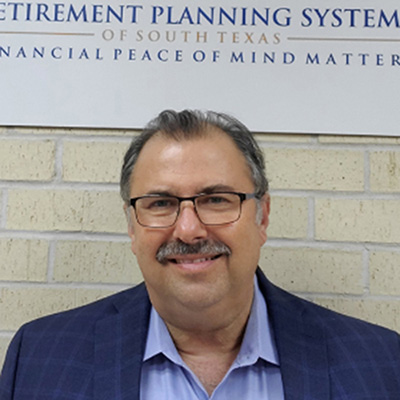
Article Library

Charles Cardenas
RPS Retirement Planning Systems of South Texas
212 W 3rd St
Weslaco, Texas 78596
charles@rpsstx.com
(956) 463-6862
Planning Retirement on a Limited Budget
Planning for retirement is a crucial step in securing a comfortable and financially stable future. However, many people face the challenge of preparing for retirement on a limited budget. With careful planning, disciplined saving, and strategic investments, enjoying a fulfilling retirement is possible even with financial constraints. Here are some critical steps to consider when planning for retirement on a limited budget.
Assess Your Financial Situation
The first step in retirement planning is to take a comprehensive look at your current financial situation. This includes assessing your income, expenses, debts, and savings. Drafting a comprehensive budget allows you to track your spending and pinpoint areas where you may reduce expenses. Pay close attention to discretionary spending and look for opportunities to save more each month.
Set Realistic Goals
Setting realistic retirement goals is essential, especially with a limited budget. Determine how much money you will need to cover your basic living expenses in retirement. Consider housing, healthcare, food, transportation, and other essential costs. Aim to establish a budget that allows you to maintain a modest but comfortable lifestyle.
Maximize Social Security Benefits
Social Security benefits may play a significant role in retirement income, especially for those on a limited budget. To maximize your benefits, consider delaying your Social Security claim until you reach full retirement age or even later. Delaying benefits may result in higher monthly payments, providing a more substantial financial cushion during retirement.
Prioritize Debt Reduction
Lowering your debt load before retiring is essential to lessen financial anxiety. Prioritize settling high-interest debts like credit card balances and personal loans. By decreasing or eliminating these debts, you may allocate more of your income towards savings and investments, thereby enhancing the security of your retirement fund.
Explore Part-Time Work
Many retirees find that working part-time during retirement provides both financial benefits and a sense of purpose. Part-time work may supplement your retirement income, reduce the need to draw down your savings and keep you socially and mentally engaged. Look for opportunities that align with your interests and skills, whether it's consulting, freelancing, or working in a less demanding role.
Invest Wisely
Investing wisely is critical to growing your retirement savings, even on a limited budget. Consider low-cost investment options such as index funds and exchange-traded funds (ETFs), which offer diversification and lower fees. Focus on creating a balanced portfolio that aligns with your risk tolerance and long-term goals. Regularly review and adjust your investments to ensure they remain aligned with your retirement objectives.
Utilize Tax-Advantaged Accounts
Take advantage of tax-beneficial retirement accounts such as 401(k)s and IRAs. Contributing to these accounts may reduce your taxable income, and your savings may grow tax-deferred. If your employer offers matching contributions, be sure to contribute enough to receive the full match, as this is essentially free money added to your retirement savings.
Downsize and Simplify
Downsizing your home and simplifying your lifestyle may significantly reduce your living expenses in retirement. Consider moving to a smaller, more affordable home or relocating to an area with a lower cost of living. Selling a larger home and purchasing a smaller one may also free up equity that may be used to boost your retirement savings.
Take Advantage of Discounts and Assistance Programs
Many discounts and assistance programs are available to retirees, especially those with limited income. Look for senior discounts on groceries, transportation, and entertainment. Additionally, explore government programs that provide assistance with healthcare, housing, and other essential services.
Stay Healthy
Maintaining good health is one of the most effective ways to reduce healthcare costs in retirement. Prioritize a healthy lifestyle by eating well, exercising regularly, and staying up-to-date with medical check-ups. Preventive care and healthy habits may help you avoid costly medical expenses and enjoy a higher quality of life in retirement.
Seek Professional Advice
Consulting a financial advisor with expertise in retirement planning may be invaluable. These professionals may assist you in creating a customized retirement strategy, fine-tuning your investment choices, and handling intricate financial matters. Even with a constrained budget, professional guidance may greatly enhance your ability to reach your retirement aspirations.
Conclusion
Planning for retirement on a limited budget requires careful planning, disciplined saving, and strategic decision-making. By assessing your financial situation, setting realistic goals, maximizing Social Security benefits, reducing debt, and investing wisely, you may build a secure and fulfilling retirement. Remember, it's never too late to start planning, and every small step you take today may contribute to a more comfortable and financially stable future.
Many people have learned about the power of using the Safe Money approach to reduce volatility. Our Safe Money Guide is in its 20th edition and is available for free.
It is an Instant Download. Here is a link to download our guide:

Best Tips
For A Worry-Free
Retirement
The Safe Money Guide